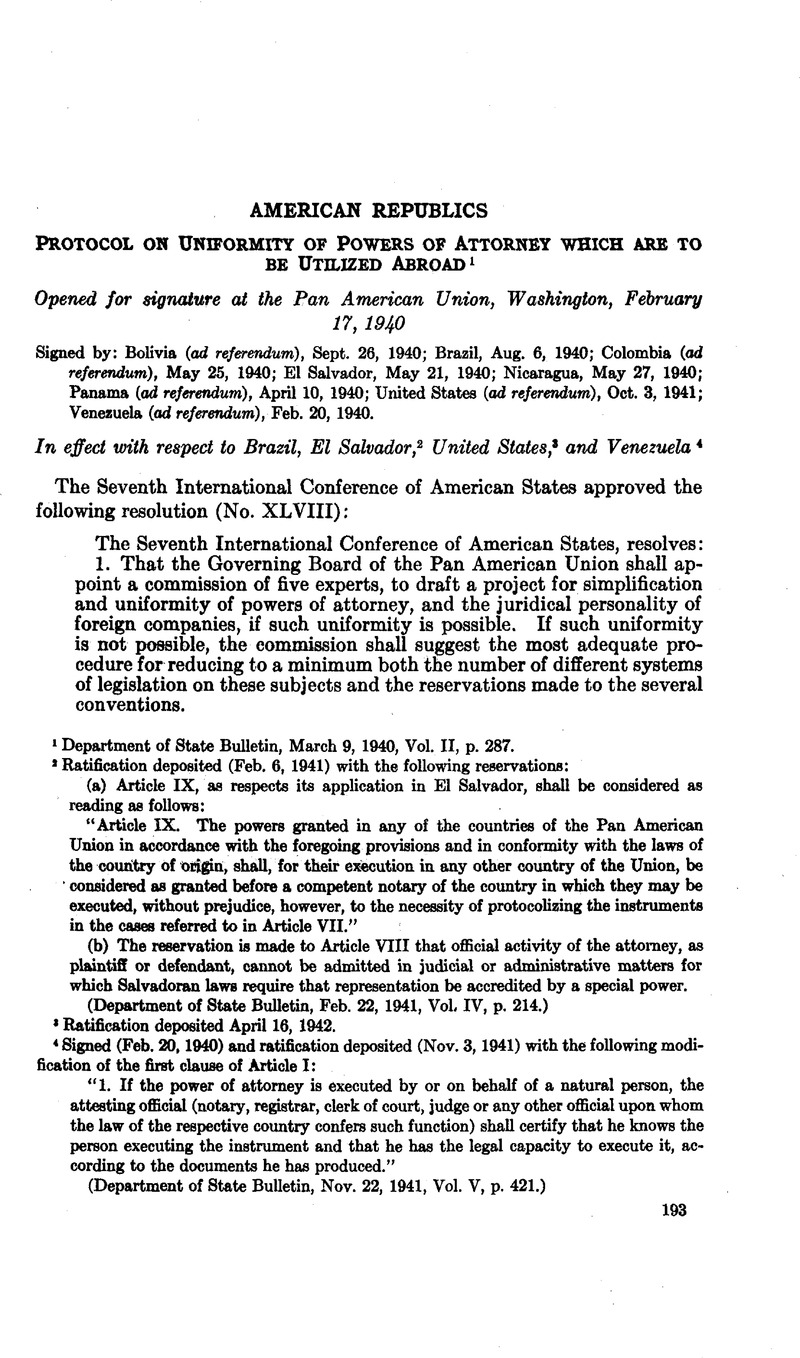No CrossRef data available.
Protocol on Uniformity of Powers of Attorney which are to be Utilized Abroad1
Published online by Cambridge University Press: 12 April 2017

Department of State Bulletin, March 9, 1940, Vol. II, p. 287
2 Ratification deposited (Feb. 6, 1941) with the following reservations:
(a) Article IX, as respects its application in El Salvador, shall be considered as reading as follows:
“Article IX. The powers granted in any of the countries of the Pan American Union in accordance with the foregoing provisions and in conformity with the laws of the country of origin, shall, for their execution in any other country of the Union, be ' considered as granted before a competent notary of the country in which they may be executed, without prejudice, however, to the necessity of protocolizing the instruments in the cases referred to in Article VII.”
(b) The reservation is made to Article VIII that official activity of the attorney, as plaintiff or defendant, cannot be admitted in judicial or administrative matters for which Salvadoran laws require that representation be accredited by a special power.
(Department of State Bulletin, Feb. 22, 1941, Vol. IV, p. 214.)
3 Ratification deposited April 16, 1942.
4 Signed (Feb. 20,1940) and ratification deposited (Nov. 3,1941) with the following modification of the first clause of Article I:
“1. If the power of attorney is executed by or on behalf of a natural person, the attesting official (notary, registrar, clerk of court, judge or any other official upon whom the law of the respective country confers such function) shall certify that he knows the person executing the instrument and that he has the legal capacity to execute it, according to the documents he has produced.”
(Department of State Bulletin, Nov. 22, 1941, Vol. V, p. 421.)